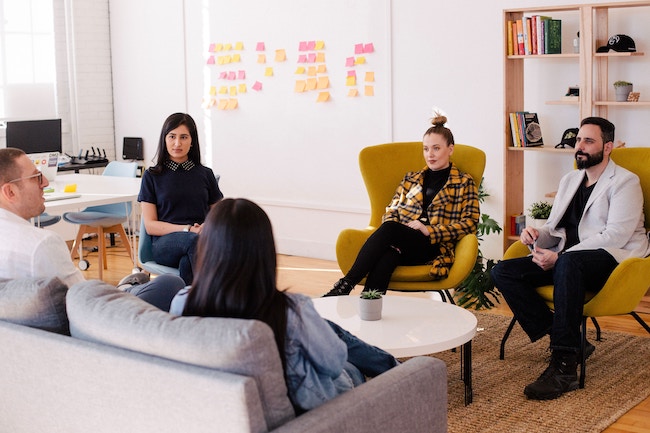Listening to people
January 23, 2020

Listening is a very underrated skill. It is so important and yet one of the topics that hardly ever gets mentioned at all, especially in a workplace.
Did you know that when people listen to someone - they are more than likely to only get half of the information on board? That is 50% of content lost immediately after listening to someone.
The importance of listening to people is not a new concept, if you conduct some research on the topic you will come across articles and papers written all the way back to 1957 - which is 63 years old at the time of me writing this. I am sure there may be pieces that date even further than that.
However in daily work life you are unlikely to learn about the importance of listening, or hear any advice on the topic, unless you are entering a management position - which means a lot of people may miss out on some crucial advice that may make a big difference.
Being a good listener and practicing something called “active listening” can be beneficial to everyone, not just for the management in your organisation.
These skills if trained and shared can help create a better, more collaborative work environment.
 Photo by You X Ventures on Unsplash
Photo by You X Ventures on Unsplash
So how to become a better listener?
Pay attention
Be in the moment and listen to the person - try not to drift off in a stream of thoughts that may be going on in your head. If you fail and drift off thinking about some other issue - own up to it and tell the person about it - this will help you keep you on your toes next time. This also gives the person’s ideas a fair chance to come across.
Signal that you are paying attention by:
- Maintaining eye contact
- Nodding
- Other visual and verbal clues like “Ok”, “Interesting”, “Go on”.
Let them speak
Let the person speak their piece, if they go quiet they may be collecting their thoughts. Give it a second - do not jump at every opportunity to say something.
You can ask follow-up questions but reserve advice and opinions for later. If it is a problem they are having ask how they would resolve it, sometimes people have the answers to their questions and problems. This simple technique may be the push in the right direction. Once they are done with their point, help them navigate the problem with questions and maybe some pieces of advice to help find best way forward.
Do not start thinking of what you are going to say back while the person is talking - wait till the end so you have the whole context before speaking yourself.
Encourage conversation
When someone is done speaking do not rush to disagree with them or give your opinion - if something is not clear - ask some questions to clarify your assumptions. There may be a chance you misunderstood or missed some piece of information.
Definitely take time to make sure you ask extra questions to get a better understanding.
Say it back
One of the techniques I have been using for a long time is paraphrasing the content back to the speaker. This is useful when you want to make sure you have understood them correctly and it can help iron out some misunderstandings early on.
Video
I have found a great summary of active listening techniques over on Mind Tools Channel:
Exercise idea
Get in a group of people - or even just two people - and do the following:
One person needs to speak for 5 minutes telling you a story or an idea to the group. The rules for the listeners are:
- You have to listen in silence
- Provide visual clues you are listening: maintain eye contact, nod, etc
- Then choose someone who has to provide the summary back of what the speaker was talking about
After the exercise reflect how many times you drifted off or started thinking about something you can say back to the speaker, etc
You will find that being a good listener is harder than it sounds.
Final words
If we were to teach all members of our teams to become active listeners imagine the positive impact that could have on the work environment and productivity. It is almost common knowledge that listening to our customers is crucial to the success of our products. If we already know that listening is important in that aspect we can apply to this our teams and learn to listen to each other a little better.